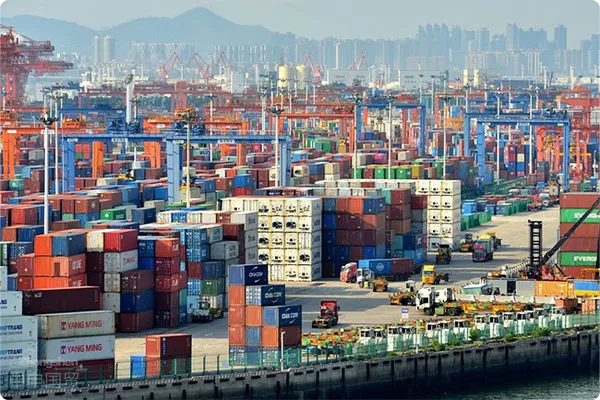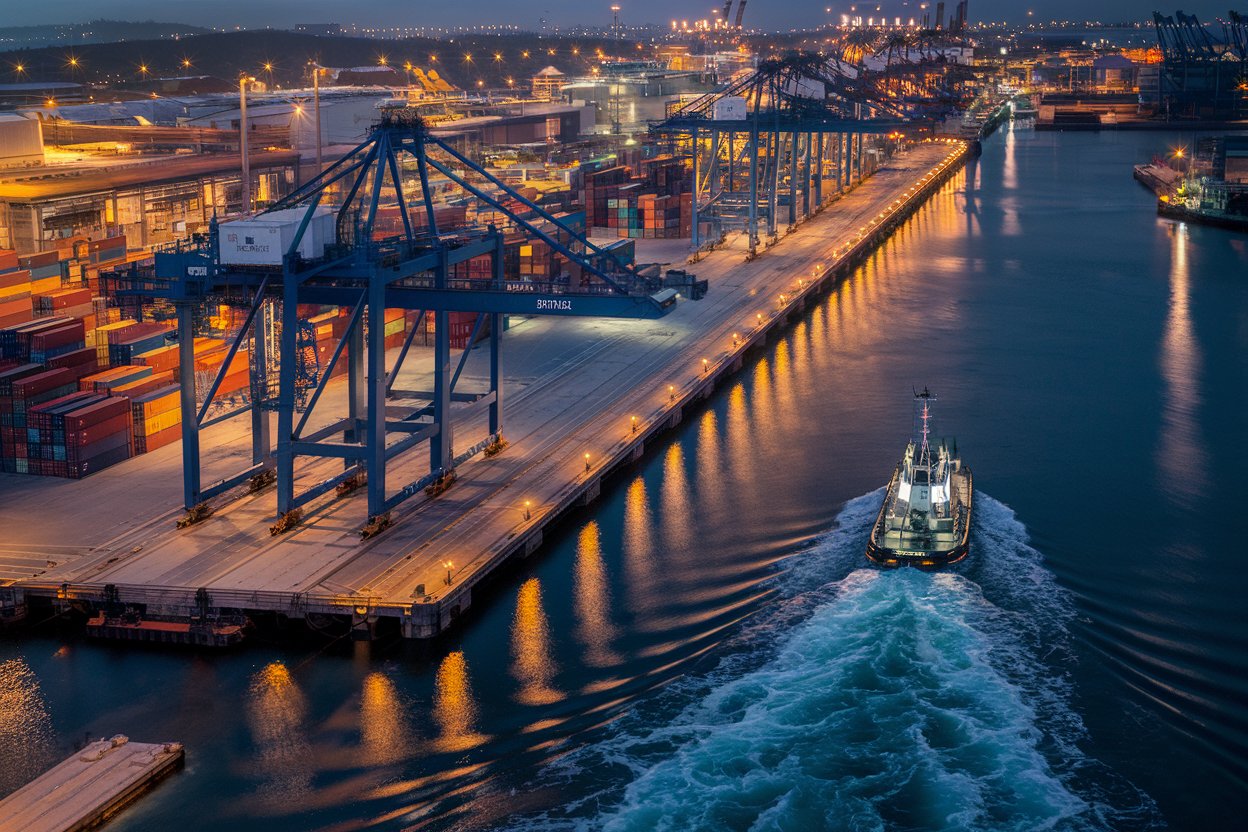- Shanghai Zhongshen International Trade Co., Ltd. - Two decades of trade agency expertise.
- Service Hotline: 139 1787 2118

Introduction
In the increasingly interconnected global trade landscape, importing sportswear from South Korea presents numerous business opportunities. However, the international trade environment is complex and ever-changing, with the import process involving multiple stages. How to ensure smooth customs clearance, secure delivery, and reasonable...FX Settlement Agency, becoming the focus of importers' attention.ZhongShen International TradeAs a professionalforeign tradeAgency companies, leveraging their extensive expertise in document processing and logistics services, assist importers in tackling challenges.
Opportunities and Challenges in the Context of International Trade
The current international trade landscape is fraught with unpredictability. On one hand, the continuous emergence of regional trade agreements presents opportunities. For instance, certain trade agreements in the Asia-Pacific region have lowered tariff barriers, reducing the costs for South Korean sportswear to enter markets like Southeast Asia or others. On the other hand, challenges arise from the rise of trade protectionism and exchange rate fluctuations. Trade protectionism often manifests in the form of additional non-tariff barriers, such as complex quality standards and certification requirements, which increase the difficulty of imports. Exchange rate fluctuations, meanwhile, impact cost calculations and profit margins; if importers fail to manage exchange rate risks effectively, they may face foreign exchange losses.
For importing sportswear from South Korea, it is necessary to pay attention to the trade policies between South Korea and the target market. For example, the free trade agreements signed between South Korea and some ASEAN countries may affect the import tariffs and customs clearance procedures for sportswear.
Key Points of Document Processing
- Commercial Invoice: This is one of the core documents, requiring accurate completion of details such as the description of goods, quantity, value, and country of origin. For sportswear imported from South Korea, it is essential to clearly specify details like fabric composition and style to meet customs valuation and rules of origin requirements. The value stated on the invoice should truthfully reflect the actual value of the goods to avoid customs inquiries and penalties due to underreporting or overreporting.
- B/L: The bill of lading serves as both a certificate of ownership for the goods and proof of the contract of carriage. When selectingMaritime TransportationWhen specifying the type of bill of lading, such as an original bill of lading or a telex release bill of lading, it is important to clarify the requirements. The original bill of lading requires the physical document for cargo pickup, ensuring high security, while the telex release bill of lading offers convenience and speed, making it suitable for short-sea shipping. However, when using a telex release bill of lading, ensure that the payment has been securely received to prevent the risk of losing cargo ownership.
- Packing list: Record in detail the specifications, quantities, etc., of the goods in each package to facilitate customs inspection and the consignee's verification of the goods. For sportswear, subdivide the records by style, size, etc., to ensure that the packing list matches the actual goods.
- It is recommended to verify through the following methods:Technical data: If the target market has relevant preferential tariff policies, a Certificate of Origin is crucial. When importing sportswear from South Korea, if the goods meet the requirements of specific free trade agreements, the corresponding Certificate of Origin can be applied for to enjoy tariff preferences. During the application process, sufficient documentation proving that the goods originate from South Korea must be provided, such as raw material procurement certificates, production and processing records, etc.
ZhongShen International Trade ensures the accuracy, completeness, and consistency of each document through rigorous review by a professional team, thereby avoiding customs clearance delays or additional costs due to documentation issues.
Professional Considerations for Logistics Arrangements
- Selection of transportation methods
- Maritime Transportation: Suitable for large-scale imports of Korean sportswear with relatively low costs. Factors such as shipping schedules and the reputation of shipping companies need to be considered. Opting for well-known shipping companies, although freight costs may be slightly higher, ensures more reliable transportation services, reducing the risks of cargo damage and delays. Additionally, attention should be paid to ocean freight surcharges, such as bunker adjustment factors (BAF) and peak season surcharges (PSS), to conduct cost calculations in advance.
- Air Transportation: Fast speed, suitable for small batches, urgent goods, or high-value sportswear. However, air freight costs are high, and the packaging requirements for goods are also stringent. When using air freight, it is important to pay attention to the airline's restrictions on cargo dimensions and weight, and to properly arrange packaging and transportation plans.
- Warehousing and Distribution
After the goods arrive at the destination port, the warehousing and distribution processes are also crucial. Chinasun International collaborates with high-quality warehousing service providers across various regions to offer both short-term and long-term storage solutions. Based on customer requirements, we provide value-added services such as sorting, repackaging, and reprocessing of goods. In terms of distribution, we integrate multiple transportation resources to ensure timely and accurate delivery to the consignee. Whether it's local delivery or regional distribution, we can develop efficient logistics solutions.
Southeast Asian Marketimport and exportProcess and Solution
- Import Process
- Pre - preparation: The importer needs to determine the details of the imported sportswear, such as brand, style, and quantity, and sign a contract with the supplier. At the same time, ZhongShen International Trade will assist the importer in understanding the regulations and standards of the target Southeast Asian market, including product quality standards and labeling requirements. For example, some Southeast Asian countries have strict restrictions on the content of harmful substances in sportswear, so the importer must ensure the goods comply with relevant standards.
- Goods shipped: The supplier arranges the transportation of goods and provides the relevant documents simultaneously. Upon receiving the documents, ZhongShen International Trade conducts a preliminary review and promptly communicates with the supplier to resolve any issues identified.
- Customs clearance phase: Before the goods arrive at the destination port, ZhongShen International Trade will declare them to the local customs. Accurate documentation will be provided, and cooperation will be given during customs inspections. If customs raises questions regarding the value, origin, or other aspects of the goods, timely explanations and supporting documents will be provided. For special regulated goods, such as sportswear involving intellectual property protection, relevant filing and authorization procedures must be completed in advance.
- Pickup and Delivery: After customs clearance is completed, arrange for goods pickup and proceed with warehousing or distribution as per customer requirements.
- Solutions
To address the complex regulations and ever-changing policies in the Southeast Asian market, ZhongShen International Trade has established an information tracking mechanism to promptly monitor policy updates and notify clients. For customs clearance challenges, we leverage our extensive experience and local partnerships to coordinate solutions. In cases where goods fail customs inspections, we assist clients in rectifying the issues and re-declaring shipments to ensure smooth customs clearance.
Advantages of VTB Foreign Exchange Settlement in the Russian Market
- Basic process of foreign exchange settlement
Foreign exchange settlement is a crucial step in import trade. The general process involves the exporter submitting documents such as the bill of lading to the bank after the goods are exported. Upon verification, the bank then makes the payment to the importer. The importer purchases foreign exchange at a domestic bank, converting RMB into the corresponding foreign currency to pay the exporter. - VTB Settlement Advantages
In Sino-Russian trade, ZhongShen International Trading holds unique advantages by leveraging VTB Bank channels. VTB Bank plays a pivotal role in Russia's financial system and maintains strong cooperative relationships with numerous Russian enterprises. Conducting foreign exchange settlements through VTB enables faster fund transfers and reduces intermediary fees. For instance, traditional settlement methods may take 3–5 working days, whereas the VTB channel can shorten this to 1–3 working days. Additionally, VTB adopts a relatively flexible approach in reviewing Russian trade backgrounds, allowing smoother foreign exchange settlement operations for qualified import businesses. This helps lower importers' capital occupation costs and mitigates exchange settlement risks.
Product Certification Service Assistance
Different markets have varying certification requirements for sportswear. For example, the EU requires CE certification, while the U.S. follows ASTM standards. In Southeast Asia, some countries may demand compliance with local textile certification standards. Although ZhongShen International Trade does not directly handle certification services, leveraging its professional expertise, it can accurately inform importers about the required certification types, application procedures, and recommend certification bodies. During the certification process, it assists importers in preparing necessary documents, communicates and coordinates with certification agencies to ensure smooth progress, thereby ensuring that imported sportswear meets the entry requirements of the target market.
Conclusion
Importing sportswear from South Korea involves multiple aspects of international trade and presents complex situations and challenges. With professional documentation handling, logistics arrangement capabilities, tailored services for different markets, and assistance with product certifications, Zhongshen International Trade provides comprehensive and reliable foreign trade agency services. These services help importers seize opportunities, tackle challenges, and ensure smooth business operations in international trade.
Related Recommendations
? 2025. All Rights Reserved. Shanghai ICP No. 2023007705-2  PSB Record: Shanghai No.31011502009912
PSB Record: Shanghai No.31011502009912










